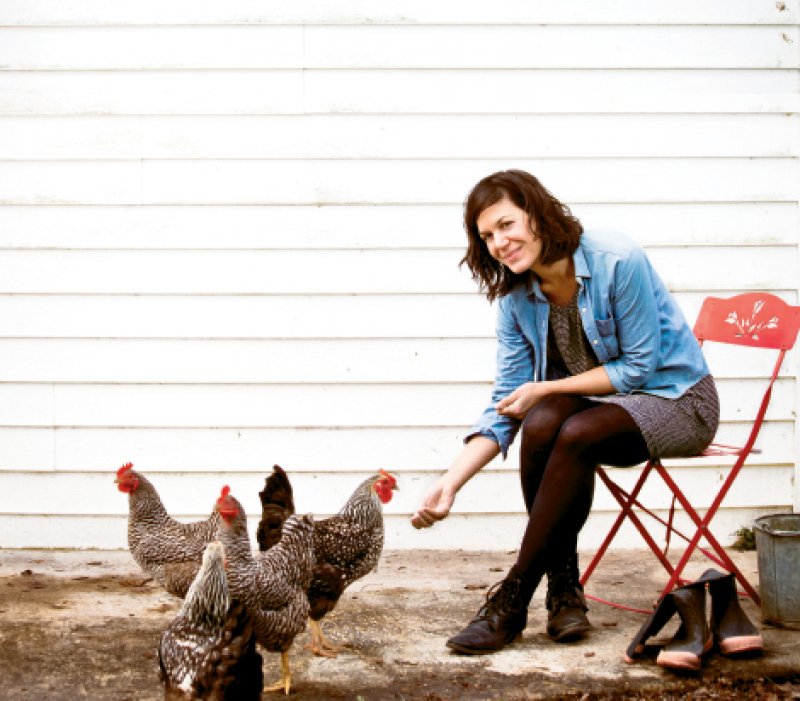Backyard Farmer
Backyard Farmer: Natalie Pollard brings urban homesteading tools and know-how to the masses
Natalie Pollard nurtures a community through her homestead supply and design shop, Small Terrain, in West Asheville. Folks who keep backyard chickens flock to the store to swap tips while others pick up the goods they need to keep bees and cultivate mushrooms. A San Francisco native, Pollard studied landscape architecture, herbalism, and art, and now manages the West Asheville Tailgate Market. She dedicated the shop to her intrepid grandmothers, true homesteaders who took care of their families on the farm.
What was your first venture in
urban homesteading?
NP: I wanted to get control of my health and nutrition, so I started volunteering in community gardens in San Francisco, and then moved to Philadelphia, where I helped start an urban farm. It wasn’t until I moved to Asheville in 2009 that I had access to a yard and wild nature. That’s when I started getting deep into this.
What small-scale project would you recommend for newbies?
NP: Composting. It’s a simple thing, and it has a huge impact. You can use a plastic bin, but ideally you’ll have a place in your backyard to throw food scraps. Another easy project that will build quality soil and reduce the amount of lawn you have to take care of is sheet mulching. Put down newspapers printed with soy inks or cardboard that doesn’t contain toxic inks on your lawn, then throw mulch over it.
What’s the biggest trend you’re seeing in this movement?
NP: Of all the classes I’ve had at the shop, the sessions on fermentation sell out the quickest. Fermented foods like yogurt, sauerkraut, tempeh, and kombucha—even
your classic dill pickle—are
really good for your health. They all have really good bacteria.
Which books on urban homesteading do you recommend?
NP: Ashley English, a local author, wrote Homemade Living, a great series of books that are very clear, fun, and informative. The Urban Homestead by Kelly Coyne and Erik Knutzen is all about doing a lot on a small piece of land in the middle of a city. Sandor Katz has been a major factor in the resurgence of fermentation. He wrote The Art of Fermentation, which is like a bible for fermenters.
